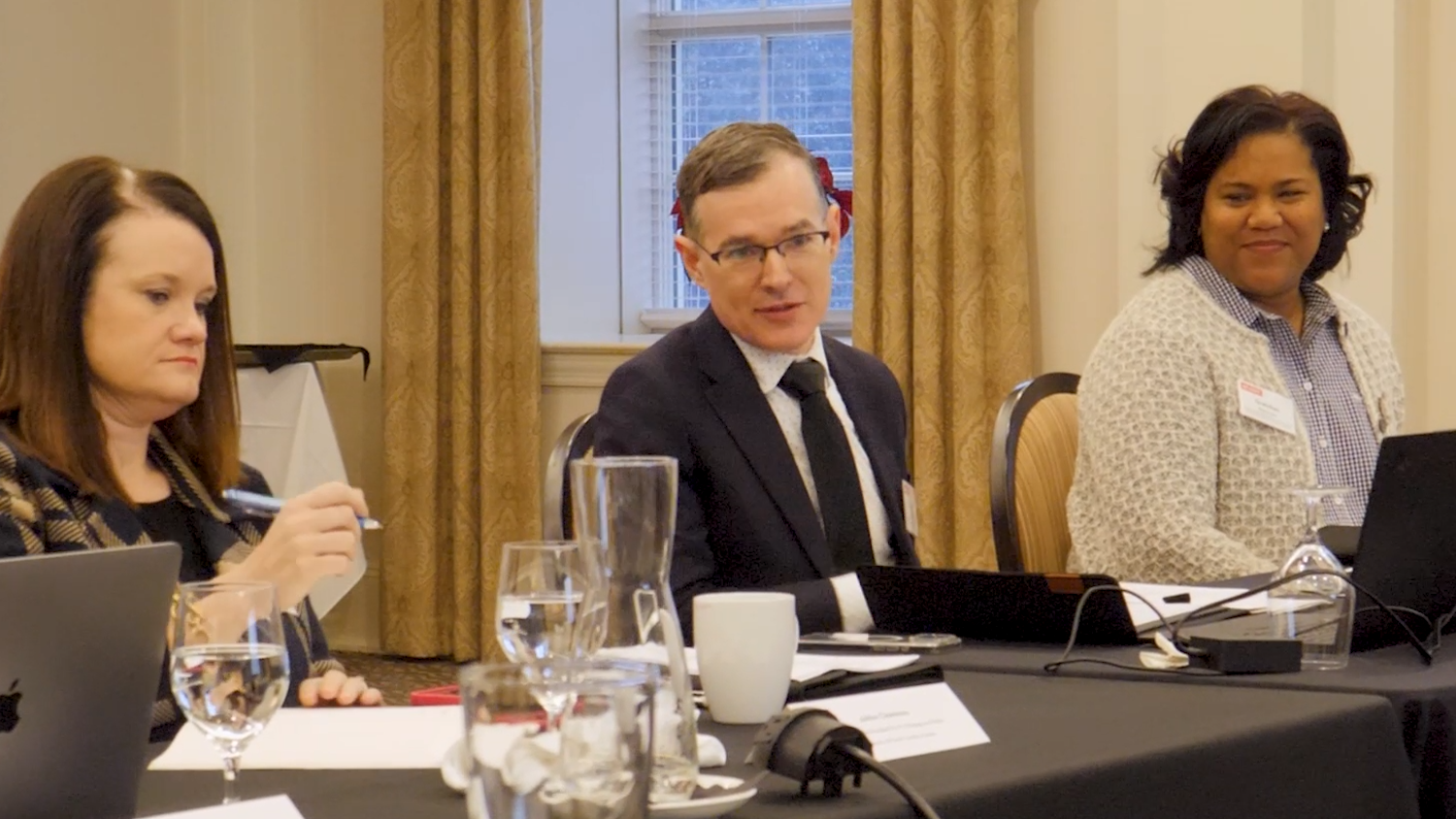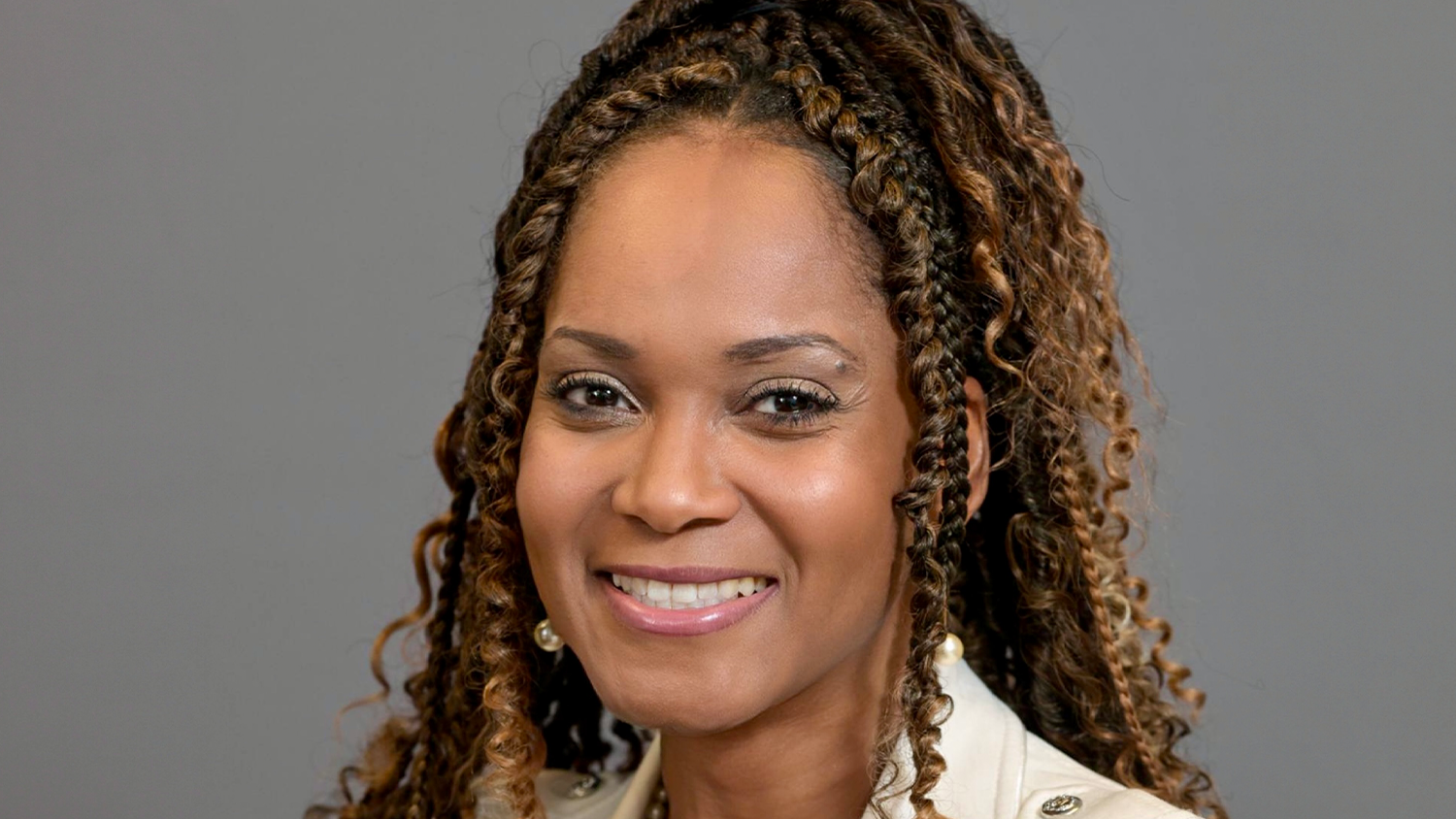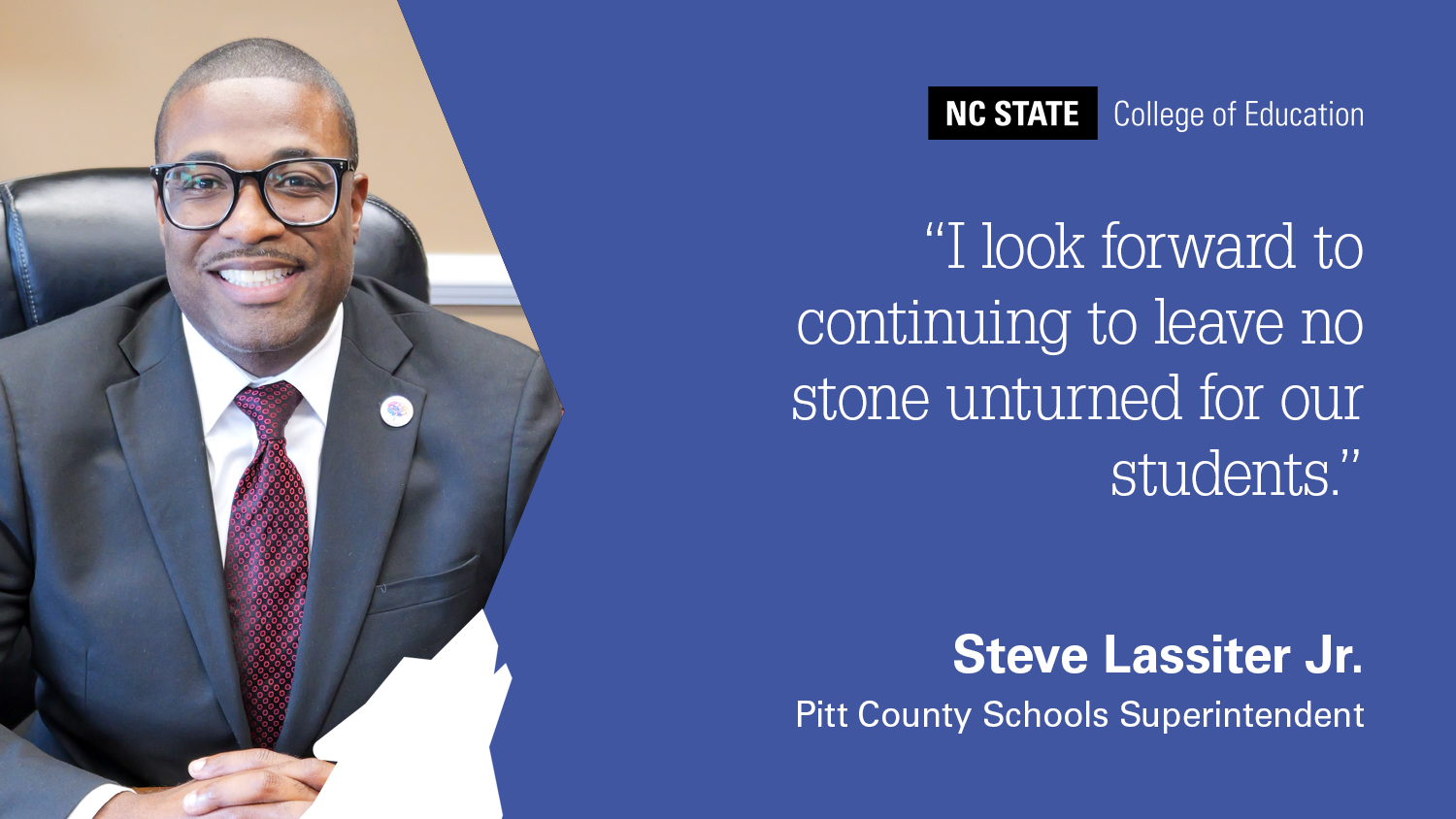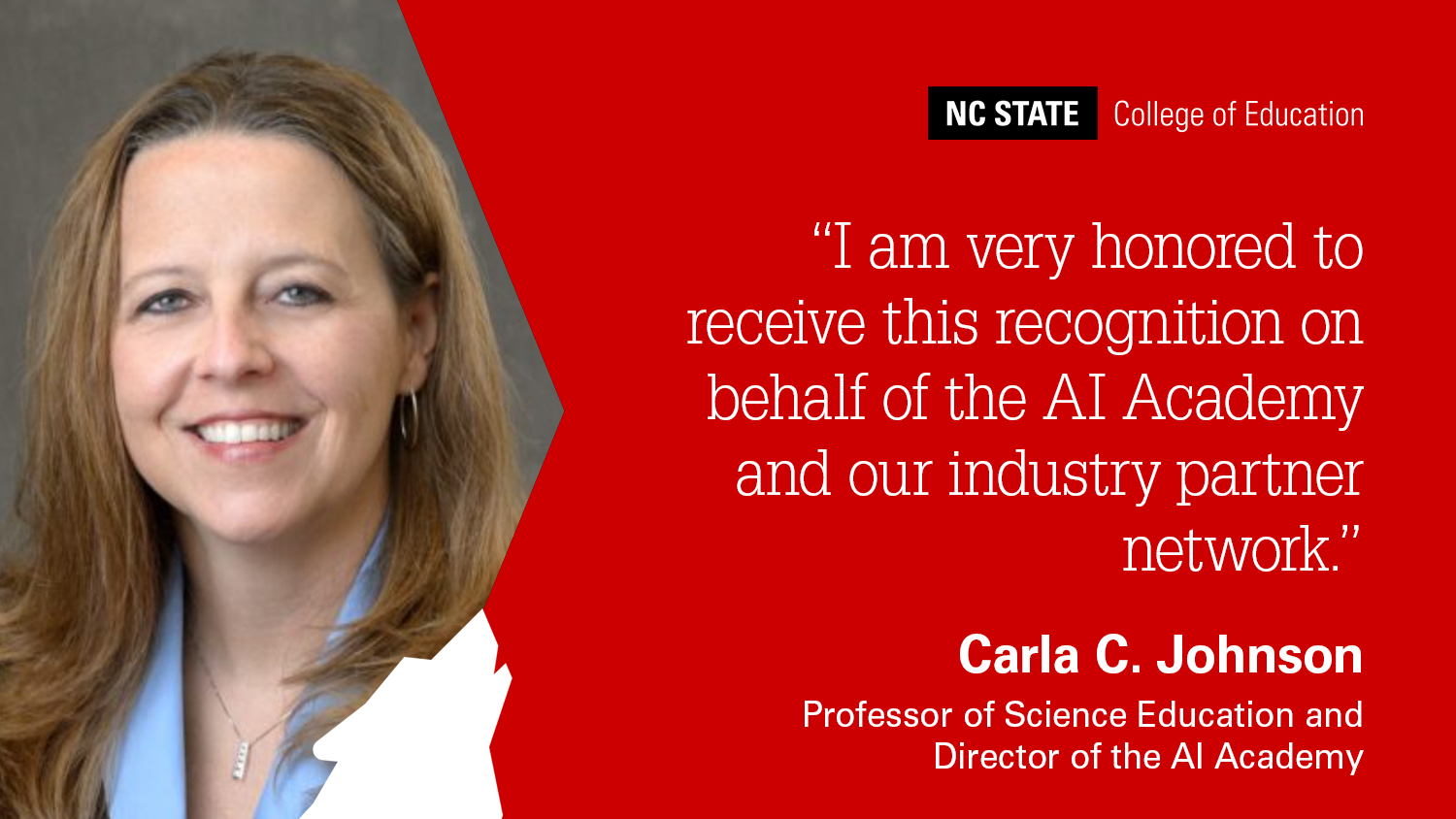‘I Don’t Know of Another State That’s Done This:’ Goodnight Distinguished Professors in Early Literacy and Spangler Distinguished Professors of Early Child Literacy Gather at NC State to Discuss Way to Improve Literacy Outcomes
Devin Kearns, the Goodnight Distinguished Professor in Early Literacy in the NC State College of Education, says that the state of North Carolina has done a lot of good work over the past decade to improve literacy education, resulting in gains in beginning reading skills, but he and colleagues from across the state know there is more work to be done.
On Dec. 10, Kearns gathered with other distinguished professors of literacy education from across North Carolina at the first North Carolina Literacy Leaders retreat, held on NC State’s Centennial Campus and hosted by NC State’s College of Education. The event was an opportunity for the state’s two Goodnight Distinguished Professors in Early Literacy and four Spangler Distinguished Professors of Early Child Literacy to share ideas, work with representatives of the University of North Carolina System, and hear from education representatives about successes and gaps in literacy education and ways to collaboratively make change.
“What’s great about this group is the diversity of knowledge. There are six of us at this time, and we all [originally] come from different parts of the country. We all do slightly different work, in some cases very different work. And all of that is focused on how we can improve outcomes for kids,” Kearns said. “They gave us all this charge to improve literacy across the state, and we are taking it up with great success.”
The Goodnight Distinguished Professorship in Early Literacy was established by Dr. Jim and Mrs. Ann Goodnight to support the activities of a professor who focuses on teaching the science of reading in early literacy at NC State and Western Carolina University. The Spangler Distinguished Professorship in Early Child Literacy was established by the C.D. Spangler Foundation at four institutions – East Carolina University, Appalachian State University, N.C. A&T University and the University of North Carolina at Charlotte.
“I think what’s so unique is these distinguished professors are across the entire state, and it really offers us an opportunity to collectively share our expertise and to think critically about how we can help teachers and students across North Carolina,” said Denise Morgan, Goodnight Distinguished Professor of Early Literacy at Western Carolina University. “It’s so rare. I don’t know of another state that’s done this. And so, I very much wanted to be a part of it.”
During the event, the group heard presentations from David English, senior vice president for academic affairs with the University of North Carolina (UNC) system; current State Superintendent Catherine Truitt; and Brian Gwyn and Drupti Chauhan with the Legislative Analysis Division of the North Carolina General Assembly.
Ashton Clemmons, associate vice president for P-12 strategy and policy with the UNC System, facilitated the retreat and secured the speakers. “I hope that the impact of [the retreat] is that students across North Carolina have better prepared teachers and are therefore better able to succeed and prepare for their future,” she said.
Gretchen Robinson, the Spangler Distinguished Professor in Early Child Literacy at N.C. A&T University, said one of the most interesting discussions for her during the event was about data related to literacy. Specifically, she was interested in the fact that, while K-12 students have made improvements in literacy outcomes, kindergartners in the state are beginning their academic careers with much lower literacy skills than the national average.
“That posed the questions about early literacy initiatives that impact our preschool students and those early public programs, as well as private and head start programs,” she said. “How are we making sure that we are equipping our young students with the skills that they need to be successful going into kindergarten?”
Further data collection related to literacy throughout the state was one of the top action items the group of distinguished professors came away with by the end of the retreat. This includes data to better understand all literacy contexts for young learners and elementary school students.
In addition to learning more about the context of literacy education in North Carolina, Kindle Turner Nash, the Spangler Distinguished Professor of Early Child Literacy at Appalachian State University, is excited about the way in which the collaborative work among the distinguished professors, the UNC System and others can lead to a coherent and cohesive plan for preparing future educators with skills in the science of reading.
“I think this establishment of all these distinguished professorships provides an opportunity for coherence in our educator preparation programs along with all of the work that’s going on already in North Carolina through policy and through legislation,” Nash said.
With a need to sustain literacy gains made throughout the state, as well as focus on improving outcomes related to reading comprehension, Kearns said that one element they hope to examine more closely going forward is the way students engage in student teaching and how learning about the science of reading and effective literacy instruction can be supported through that process for pre-service teachers statewide.
“I think part of our charge will also be to support literacy faculty across the state in collaborating and improving our collective ability to teach teachers to teach reading,” Kearns said. “There is a lot of opportunity to do things that are new and creative that we would not have thought of if we were doing them on our own.”
The next few months following the Dec. 10 meeting, Kearns said, will involve a “learning phase” where the distinguished professors continue to gather information to draw upon in order to develop concrete ways to make change that will lead to students who are “better readers, happier readers, more capable learners and kids who are excited about coming to school because the books aren’t hard for them.”
- Categories:



